Below the layers of Yucca Mountain
A retired USGS geologist shares his experience of working on the publicly misunderstood nuclear waste repository and its geology.
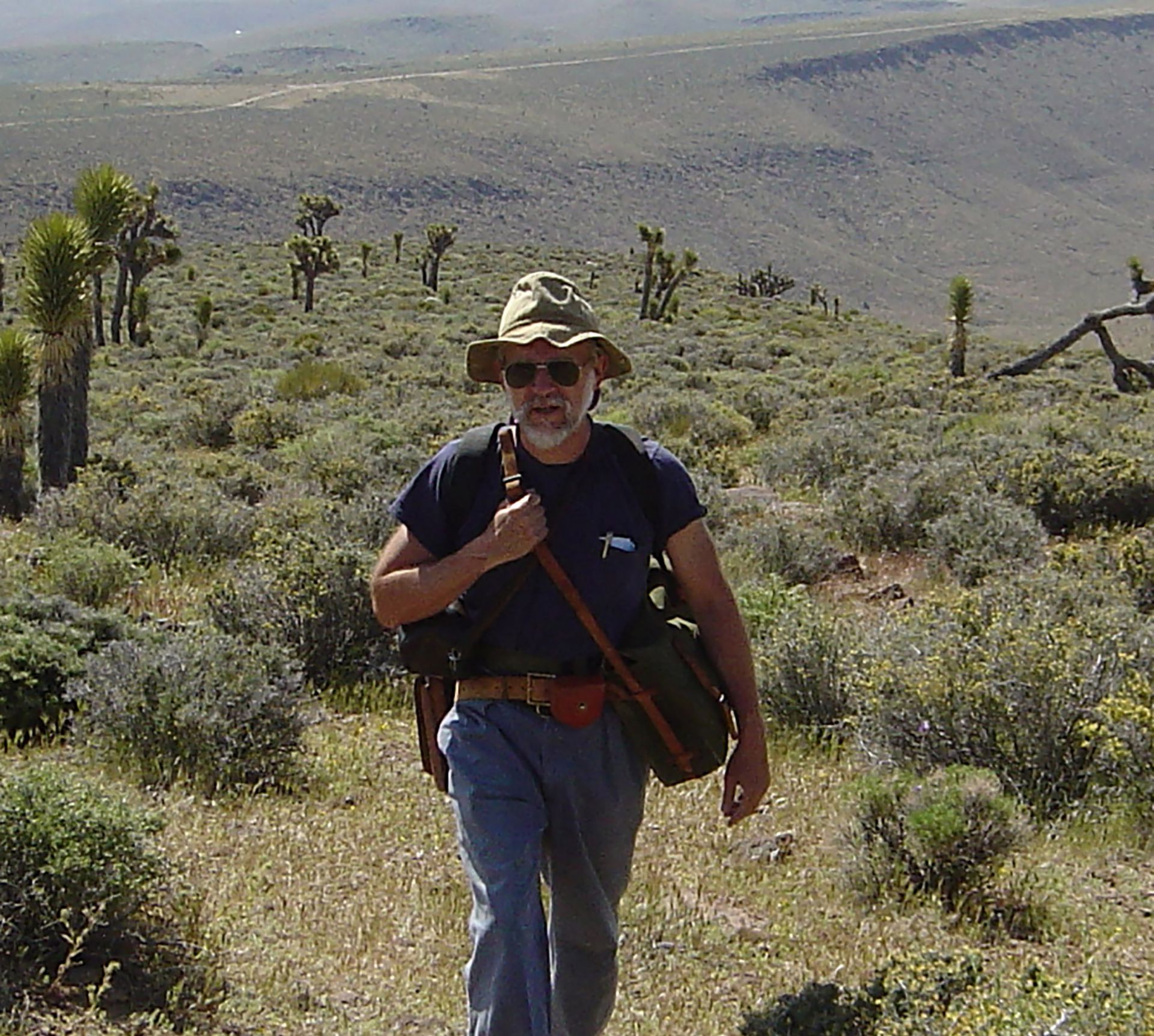

A message from Electrical Builders, Ind.
America’s Top Performing Nuclear Plants Rely on Electrical Builders, Industries to Expand and Extend the Life of Their Critical Electrical Assets
A retired USGS geologist shares his experience of working on the publicly misunderstood nuclear waste repository and its geology.


Starkey
ANS government relations director John Starkey was a recent guest on the podcast The New Republican. Starkey discussed a range of topics with podcast host Lincoln Wallis in the 30-minute episode, “All Things Nuclear.”
“In 2020, nuclear energy became the second-largest source of electricity in the United States,” Starkey said in response to Wallis’s first question, adding, “That would entail nearly 20 percent of electric generation in the U.S. Nuclear energy has also operated at 90 percent capacity rate for the past 20 years or so. No other source of electricity can touch those [capacity] numbers.… I really see [nuclear energy] being a leader in decarbonization in the country and the world.”
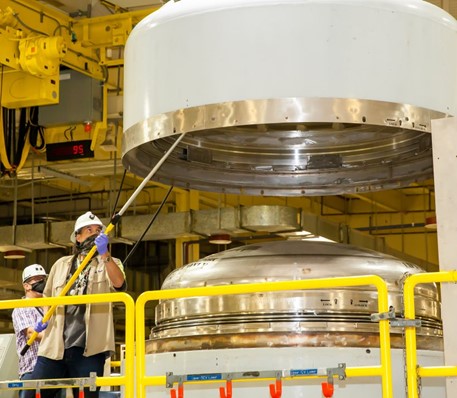
The Department of Energy’s Office of Environmental Management (EM) has released its Strategic Vision 2021-2031 (hereinafter referred to as the 2021 Strategic Vision), a blueprint to the cleanup program’s anticipated accomplishments over the next decade. The new strategic vision updates EM’s previous report, A Time of Transition and Transformation: EM Vision 2020-2030, released in March of last year.
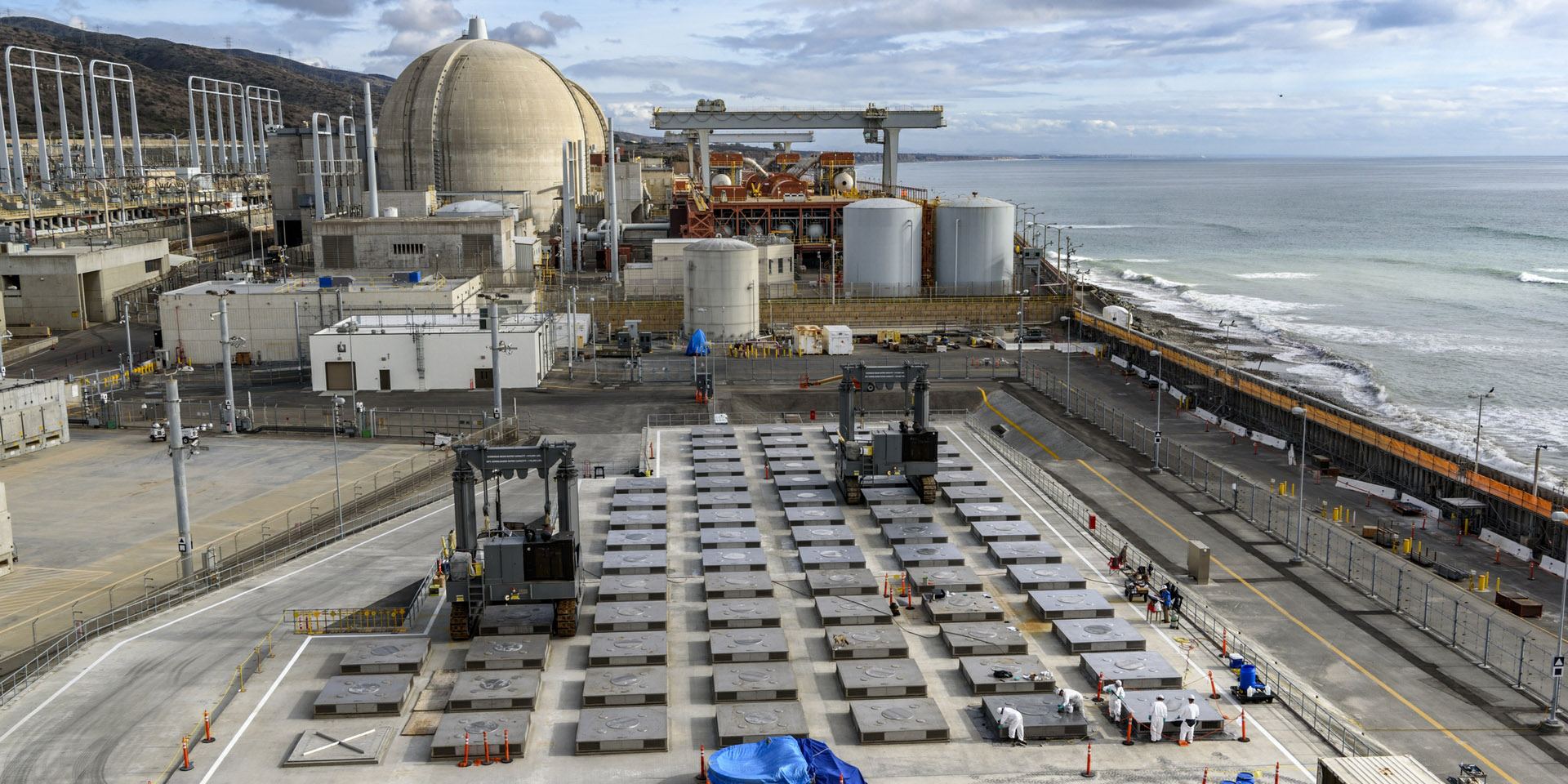
Saying they are cautiously optimistic that the Biden administration can change the U.S. trajectory on nuclear waste, some Stanford University experts have offered their recommendations on how it can be done in a recent Stanford news posting.
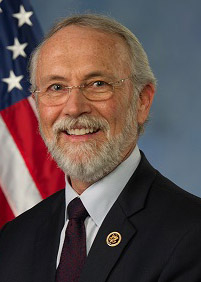
Newhouse
In a letter written to Energy Secretary Jennifer Granholm, Rep. Dan Newhouse (R., Wash.) has urged the Department of Energy to maintain its 2019 interpretation of high-level radioactive waste. Newhouse was responding to a letter sent to Granholm by several special interest groups and state leaders asking that the DOE immediately rescind the HLW interpretation.
That special interests/state leaders letter, sent on February 26—one day after Granholm was confirmed as energy secretary—was signed by Washington attorney general Bob Ferguson, Washington State director of ecology Laura Watson, and Phil Rigdon of the Yakama Nation, along with representatives from Natural Resources Defense Council, Hanford Challenge, and Columbia Riverkeeper. The letter said, in part, “We look forward to working with you on the Department’s cleanup of legacy nuclear waste at sites such as the Hanford Nuclear Reservation located near Tri-Cities, Washington. Washington houses 60 percent of the nation’s High-Level Radioactive Waste with 56 million gallons stored in 177 underground storage tanks at Hanford."
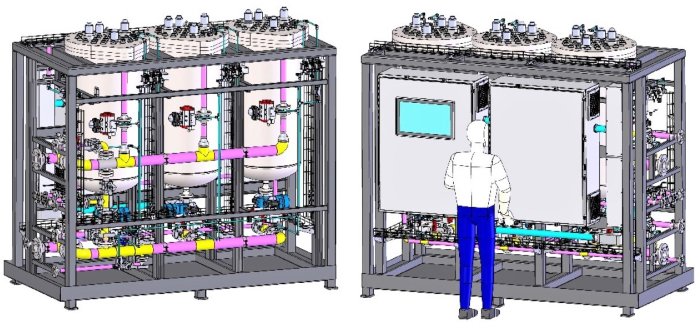
A new wastewater filter system being installed at Hanford’s Effluent Treatment Facility (ETF) is expected to increase waste processing throughput, improve efficiency, and save money as the site in southeastern Washington gears up to treat tank waste, the Department of Energy announced.
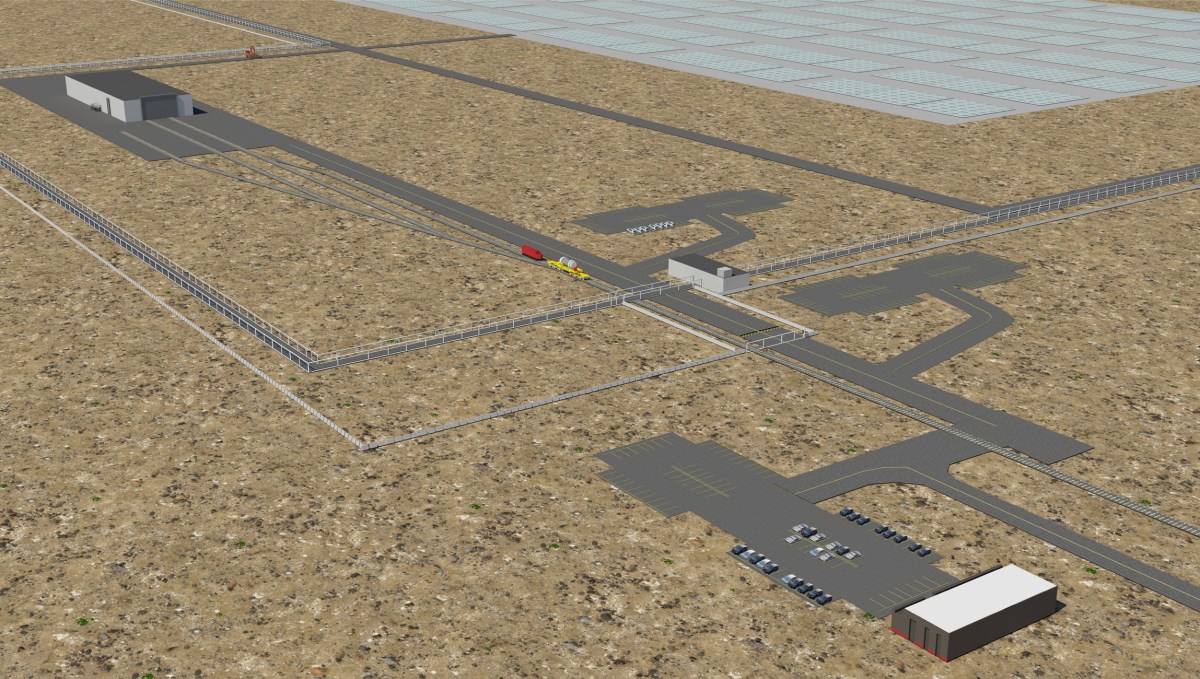
New Mexico attorney general Hector Balderas has filed suit against the Nuclear Regulatory Commission and the United States, seeking to stop Holtec International’s application to build and operate its HI-STORE consolidated interim storage facility for used nuclear fuel in the state. The complaint, filed in the U.S. District Court of New Mexico on March 29, seeks a declaratory judgment that the NRC is acting beyond the scope of its authority and an injunction preventing the licensing from moving forward.
The Nuclear Regulatory Commission has delayed the release of a safety report for Holtec International’s HI-STORE consolidated interim storage facility proposed for New Mexico, claiming it needs additional information to complete its review of the license application. The NRC previously said it would complete its safety review and publish a safety evaluation report for the spent fuel storage facility by May.
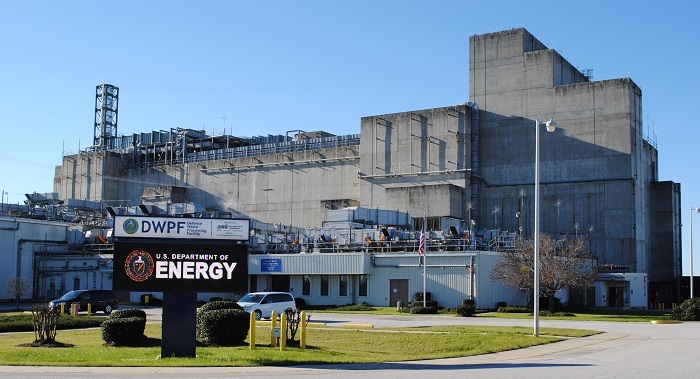
The month of March marked the 25th year of radiological operations for the Defense Waste Processing Facility (DWPF) at the Department of Energy’s Savannah River Site in South Carolina. Radiological operations at DWPF, which is used to treat Savannah River’s high-level radioactive tank waste, began on March 12, 1996, with the first canister of vitrified waste poured on April 29 that year.
To date, more than 4,200 stainless steel canisters of vitrified waste have been poured at DWPF, according to the DOE.
The only operating waste vitrification plant in the nation, DWPF is operated by Savannah River Remediation, the DOE’s liquid waste contractor at the site. According to the DOE, DWPF operations are expected to continue for approximately 15 more years, and about 4,000 more canisters are scheduled to be produced. The DOE expects to begin hot operations at a second waste vitrification plant later this year at its Idaho National Laboratory site.

Eiler
Noting that an increasing number of large components will need to be shipped from the growing number of nuclear power plants being decommissioned, Todd Eiler, director of decommissioning and decontamination engineering projects at EnergySolutions, said that the safety of nuclear waste transportation is paramount. “It is imperative as an industry that we do these shipments safely. There’s really no margin for error here,” Eiler said on March 11 during the 2021 Waste Management Symposia virtual conference panel session “Efficient and Effective Waste Management During the D&D of Nuclear Power Plants.”
While noting the stellar safety record of the nuclear industry in transporting radioactive waste, Eiler said that any incident involving a large component from a decommissioned nuclear reactor will cause national headlines, and that the industry needs to adopt a conservatism above and beyond what is already required by regulations.
As plant owners and decommissioning companies prepare to ship reactor components for disposal, Eiler said, entities that do not have direct regulatory oversight but may have some secondary involvement should not be overlooked. As an example, he said that when moving the San Onofre-1 reactor pressure vessel to Utah for disposal, EnergySolutions was not required by regulations to coordinate with the Federal Railroad Administration. “However, they are a stakeholder that definitely has authority over a project of that magnitude [where] you are transporting an irradiated component on the nation’s most in-demand rail infrastructure,” he said, adding that getting the administration’s input early in the project was important.
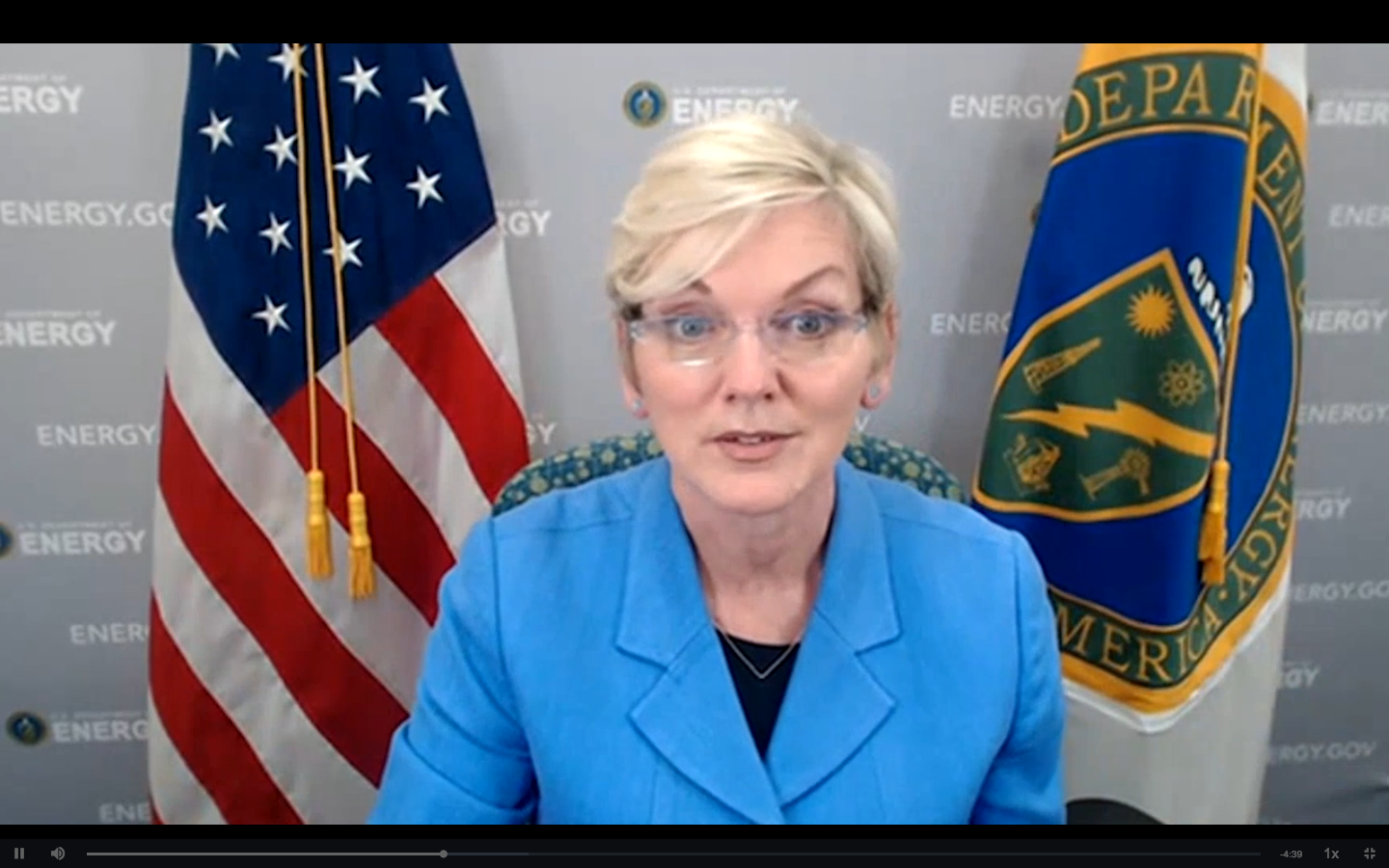
Secretary Granholm during a live stream of the 2021 Waste Management Symposia.
Newly appointed Energy Secretary Jennifer Granholm promised a more “collaborative and inclusive approach” to working with communities hosting and surrounding Department of Energy cleanup sites during a video address to the 2021 Waste Management Symposia on March 9. Granholm is the highest DOE official to ever address the annual conference dedicated to radioactive waste management, which is being held virtually this year due to the ongoing pandemic.
“Our work is about more than just restoring the land,” Granholm said of the DOE’s environmental management program. “It is really about keeping our promises to the American people. It is our responsibility to lift this burden from communities that have shouldered the burden of our safety and help them achieve a more vibrant and sustainable future.”

William “Ike” White, the DOE's acting assistant secretary for Environmental Management. Source: DOE
William “Ike” White, the Department of Energy’s acting assistant secretary for environmental management, helped open the 2021 Waste Management Symposia by announcing a new era for the department’s Office of Environmental Management (EM) and its cleanup mission. Speaking via live stream during the virtual meeting’s plenary session on March 8, White said, “Today, EM is at the start of a new era, with a new administration and a new set of priorities for the year, and, hopefully, the start of a new post-pandemic world.”
The new priorities that White touted are contained in EM’s Calendar Year 2021 Mission and Priorities, which outlines specific planned goals across the cleanup complex for the coming year. According to the DOE, the calendar serves as a marker for EM’s continuing success in addressing the legacy of nuclear weapons production and government-sponsored nuclear energy research.
The American Nuclear Society has a strong presence at the virtual Waste Management Symposia 2021 (WM2021), March 8-12, 2021. It is the first time the event is being held virtually, a decision made by the organizers with the ongoing COVID-19 pandemic in mind.
ANS’s involvement: ANS Executive Director/CEO Craig Piercy is among the presenters of awards, including those for the best oral and poster presentations/papers from last year’s event. ANS President Mary Lou Dunzik-Gougar is a featured speaker in a STEM panel. She will discuss ANS’s Navigating Nuclear program during the “Setting the Hook: Partnering to Reel in STEM Students Early” panel on Thursday. The presentation is one of three panels dedicated to STEM initiatives for younger students.
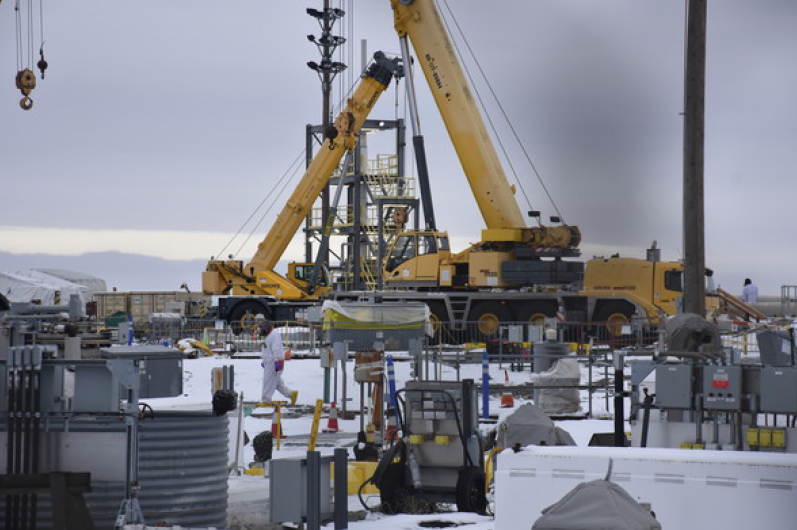
Workers retrieve waste from a single-shell tank at the Hanford Site earlier this year. Photo: DOE
The Department of Energy’s Office of Environmental Management (EM) has issued a draft request for proposals for the new Integrated Tank Disposition Contract at the Hanford Site near Richland, Wash. The 10-year, $26.5 billion contract will replace the Tank Operations Contract currently held by Washington River Protection Solutions, and the scope will be expanded to include the operation of the Waste Treatment and Immobilization Plant (WTP) after radiological, or “hot,” commissioning of the plant is completed.
The DOE had awarded a tank closure contract to a team led by BWX Technologies in May of last year, but later rescinded that decision after protests were raised by the two losing contract bidders.
About 56 million gallons of radioactive waste is contained in Hanford’s 177 aging underground tanks. The WTP, which is still under construction, will vitrify the waste after it has been separated into low- and high-activity waste streams.
A subcontractor has been selected to continue making modifications to a Hanford facility to transfer nearly 2,000 highly radioactive capsules to safer interim dry storage.
Central Plateau Cleanup Company, the Department of Energy’s prime cleanup contractor for the Central Plateau area of the Hanford Site, near Richland, Wash., recently awarded a $9.5 million construction subcontract to Apollo Mechanical Contractors. Apollo will continue work on the site’s Waste Encapsulation and Storage Facility (WESF), where nearly 2,000 highly radioactive capsules containing cesium and strontium are stored underwater.
Apollo will modify the WESF and install equipment needed to transfer the radioactive capsules from a water-filled basin to safer interim dry storage. In the 1970s, to reduce the temperature of the waste inside Hanford’s waste tanks, cesium and strontium were removed from the tanks and moved to the WESF. The DOE expects that the transfer of the capsules to dry storage will be completed by 2025.
“While the 1,936 cesium and strontium capsules are currently in safe storage, WESF is an aging facility,” said Gary Pyles, project manager for the DOE’s Richland Operations Office. “Moving the capsules will enable the planned deactivation of WESF and will reduce the risk and significantly reduce the annual costs for storing the capsules.”
The antinuclear organization Beyond Nuclear is appealing the Nuclear Regulatory Commission’s dismissal of its petition to intervene in the proceeding for Interim Storage Partners’ (ISP) application to build and operate a consolidated interim storage facility (CISF) for spent nuclear fuel in western Texas. Beyond Nuclear filed suit in the U.S. Court of Appeals for the District of Columbia Circuit on February 10, asking the court to order the dismissal of the license application.
ISP, a joint venture of Waste Control Specialists (WCS) and Orano, submitted its application for the CISF with the NRC in June 2018. In September 2018, Beyond Nuclear filed a motion to dismiss the application. An NRC Atomic Safety and Licensing Board denied Beyond Nuclear’s request for a hearing in the licensing proceedings, and in December 2020, the NRC issued an order upholding that decision.
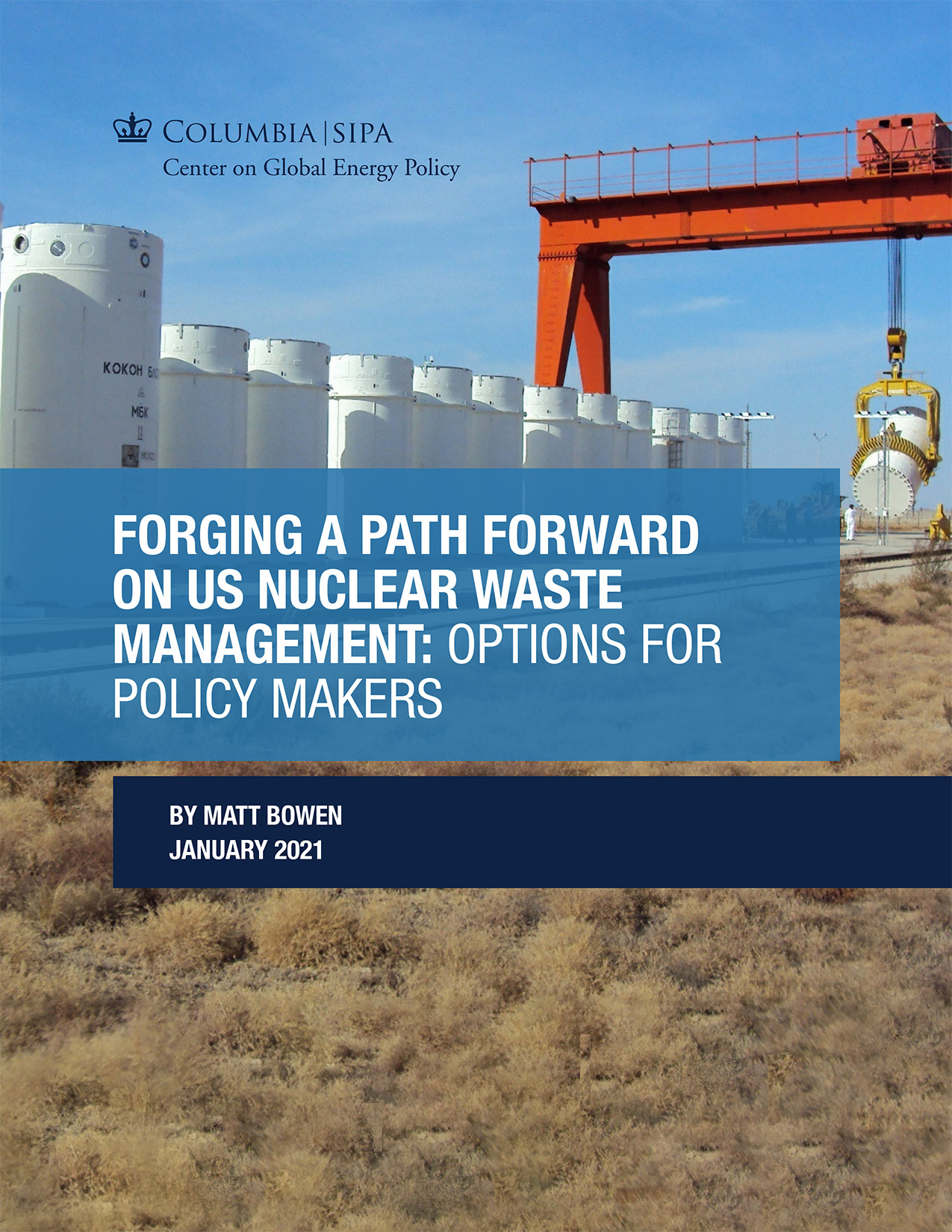 A new report out of Columbia University’s Center on Global Energy Policy (CGEP) offers a number of recommendations for improving the management of spent nuclear fuel and high-level radioactive waste in the United States.
A new report out of Columbia University’s Center on Global Energy Policy (CGEP) offers a number of recommendations for improving the management of spent nuclear fuel and high-level radioactive waste in the United States.
The report, Forging a Path Forward on U.S. Nuclear Waste Management: Options for Policy Makers, explains how the United States reached its current stalemate over nuclear waste disposal. It then examines productive approaches in other countries, and a few domestic ones, that could guide policymakers through options for improving the prospects for finding a disposal path for U.S. spent fuel and HLW.
Part of the center’s wider work on nuclear energy, the report echoes previous recommendations for U.S. spent fuel and HLW management, such as the use of a consent-based siting process and the formation of an independent waste management organization, both of which were recommended in the Blue Ribbon Commission’s 2012 report to the Secretary of Energy and Stanford University’s 2018 report, Reset of U.S. Nuclear Waste Management Strategy and Policy.
An aerial view of the Salt Waste Processing Facility at SRS. Photo: DOE
The hot commissioning testing phase of operations at the Salt Waste Processing Facility (SWPF) has been completed, signaling the facility’s entrance into fully integrated operations with the other liquid waste facilities at the Department of Energy’s Savannah River Site in South Carolina.
Radiation shielding, environmental emissions, and product waste acceptance requirements were all tested and validated during the commissioning phase of the SWPF, the DOE announced on January 19. The SWPF will treat the approximately 31 million gallons of remaining salt waste currently stored in underground tanks at SRS.
Parsons Corporation, the contractor that designed and built the first-of-a-kind facility, will operate the SWPF for one year, beginning this month. It is anticipated that the facility will process up to 6 million gallons of waste during the first year of operations.
The Department of Energy is considering disposing of contaminated process equipment from its Savannah River Site (SRS) at a commercial low-level waste facility using its recent interpretation of the statutory term “high-level radioactive waste,” which classifies waste generated from the reprocessing of spent nuclear fuel based on its radiological content rather than its origin.
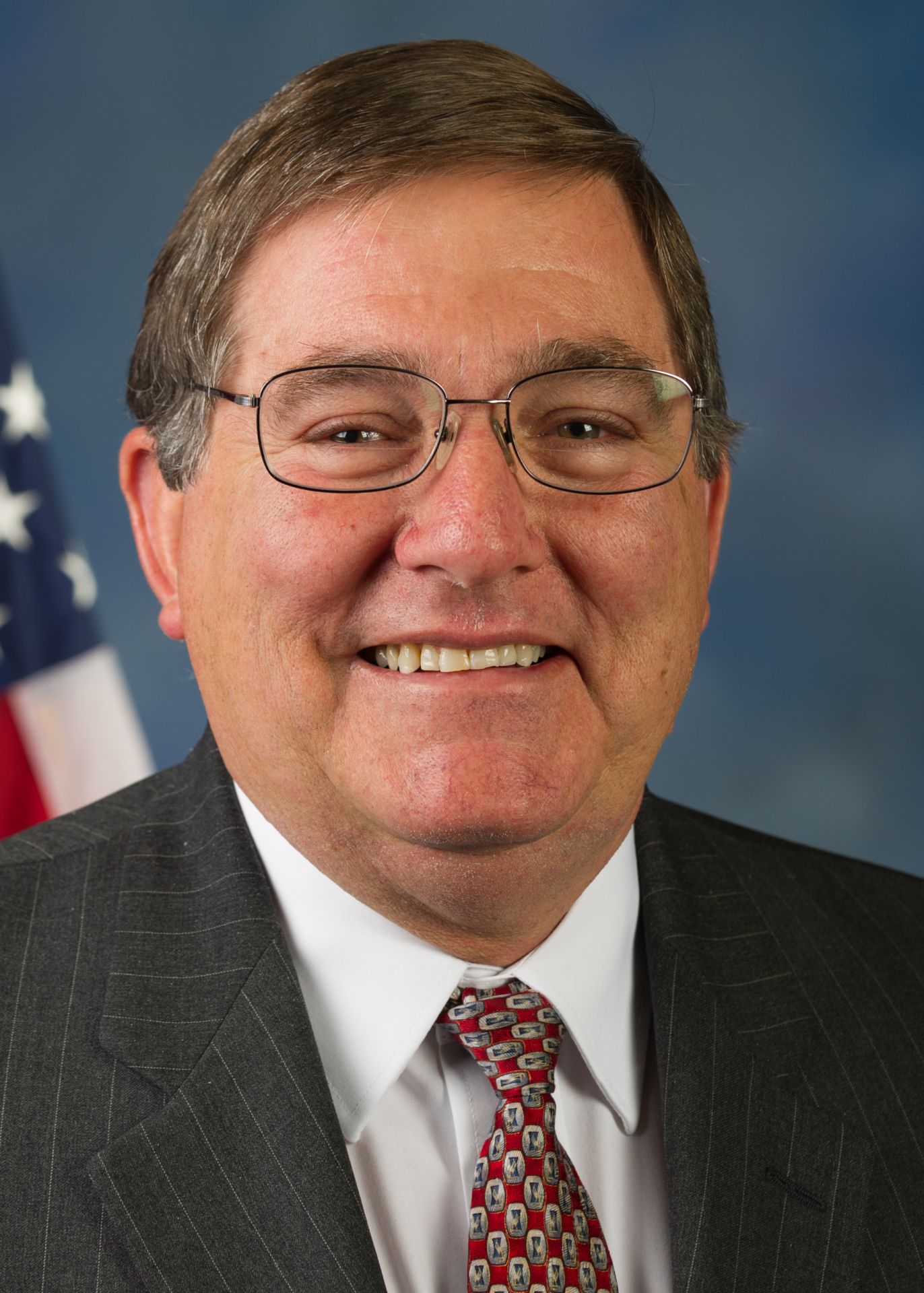
Burgess
The U.S. Congress has failed to uphold its promise to fully fund Yucca Mountain, in Nevada, as a permanent repository for spent nuclear fuel, Rep. Michael C. Burgess (R., Texas) writes in an op-ed article published on December 8 in the Dallas Morning News.
More than three decades after passing the Nuclear Waste Policy Act, Congress has yet to fully fund the Yucca Mountain Project. Burgess points out that while some countries have found success with reprocessing spent fuels, the fission process will always produce some amount of material that must be safely disposed, making it necessary to find a permanent solution.